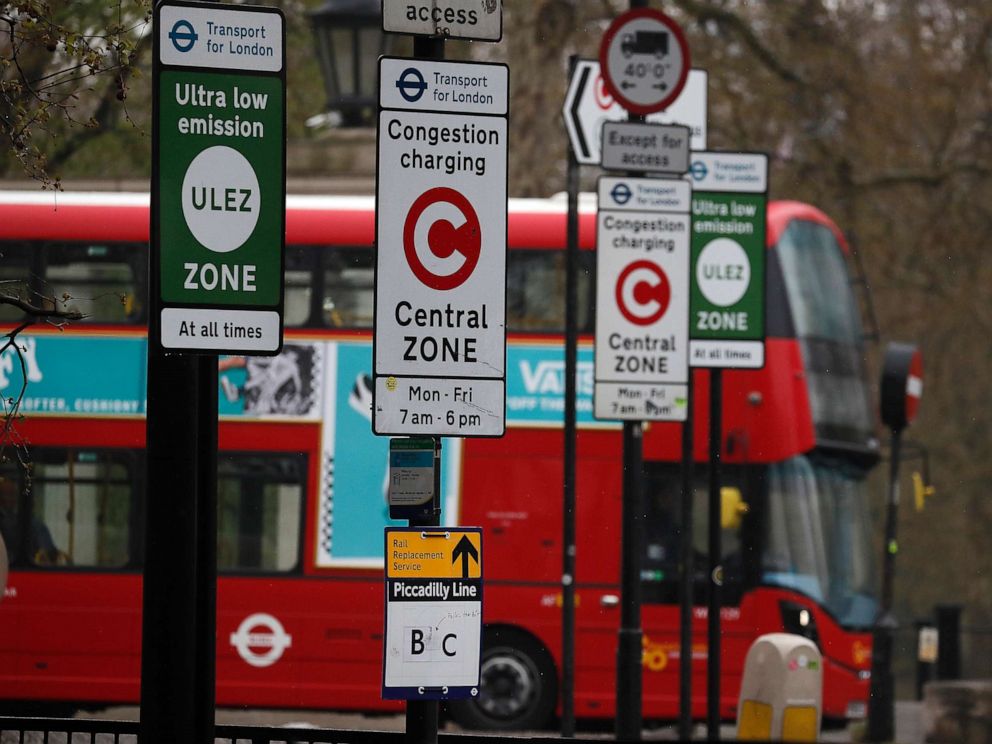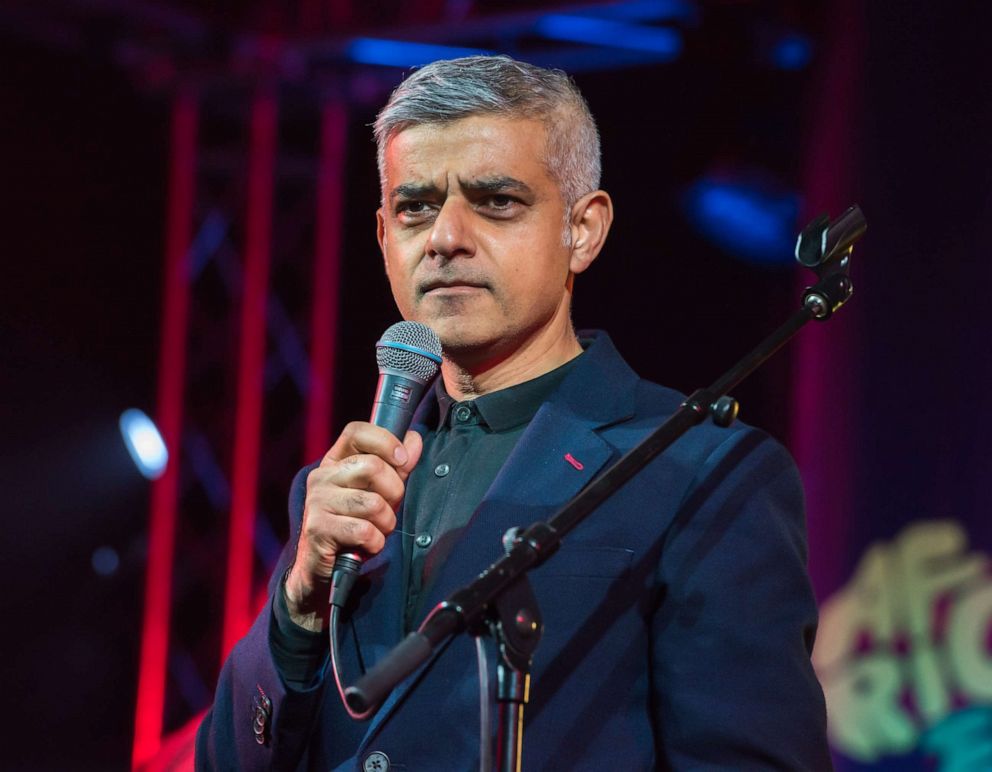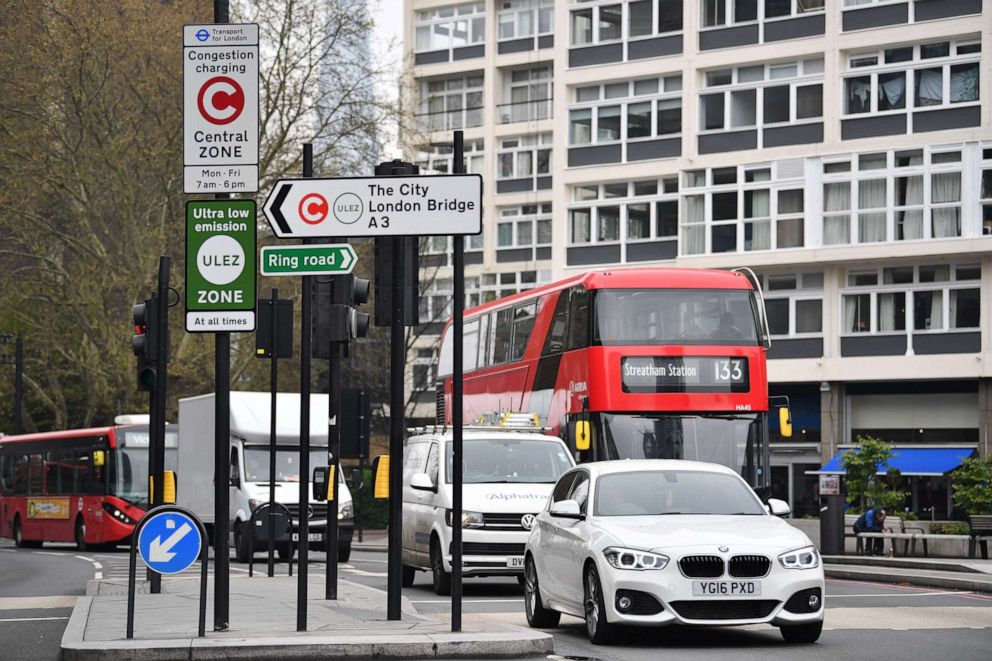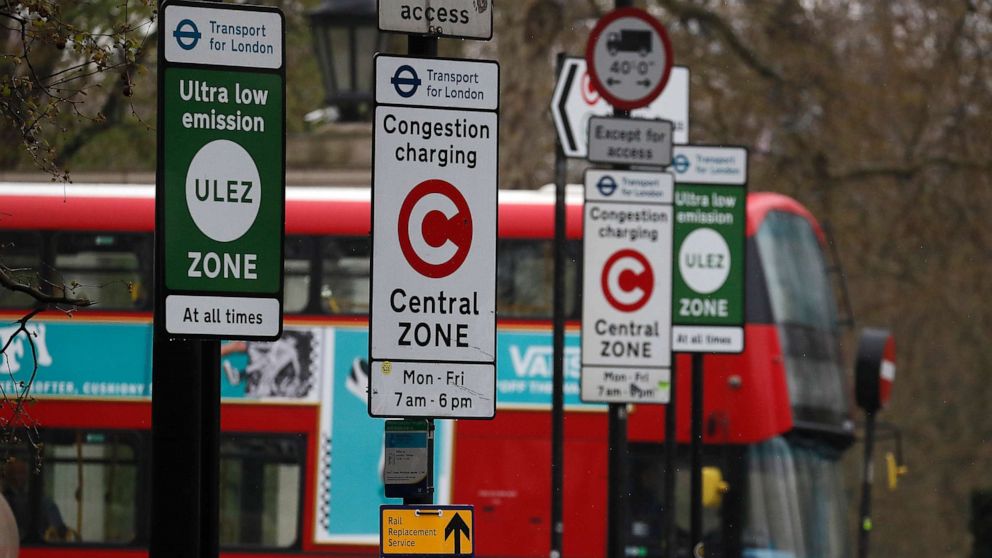London introduces Ultra Low Emissions Zone for vehicles with charges up to $130
LONDON -- London introduced a new Ultra Low Emissions Zone (ULEZ) on Monday, a radical new step to clean up the city's air and improve public health that the mayor's office described as the "world's toughest vehicle emissions standard."
The low pollution zone will operate 24 hours a day, seven days a week, charging cars and motorbikes that do not comply with European Union emissions standards £12.50 ($16) each time they enter central London, while trucks and buses will be charged £100 ($130).
Anyone who does not pay the fine will receive a warning letter, and if they still refuse, will be fined £160 ($208).

This will mostly affect older vehicles that pollute more, according to the Financial Times.
Environmental campaigners and politicians in London have welcomed the move as necessary for both public health and finances, although some small business leaders say the charge is too high.
The mayor of London, Sadiq Khan, described the introduction of ULEZ as "a landmark day for our city."
"Our toxic air is an invisible killer responsible for one of the biggest national health emergencies of our generation," he said in a statement. "I simply refuse to be yet another politician who ignores it. The ULEZ is the centerpiece of our plans to clean up London's air – the boldest plans of any city on the planet, and the eyes of the world are on us."

Cardiovascular charity British Heart Foundation hailed the move, claiming action was required as U.K. air pollution plays a role in up to 36,000 deaths a year.
"The ULEZ will help reduce the levels of dangerous pollutants in the air Londoners breathe and crucially, it will help to protect the health of the most vulnerable people across the capital," Sunib Gillespie, the charity's chief executive said. "Air pollution is a major threat to the UK's health, and contributes to thousands of heart attacks and strokes every year. … We now need to see other cities across the U.K. following suit."
However, the Federation of Small Businesses says many of its members have expressed concern that the scheme is an "additional cost burden" and that proposals were not properly communicated to them by the government.
"FSB fully acknowledges that tackling air quality is a critical issue for London," Sue Terpilowski OBE, London Policy Chair of the FSB said in a statement. "However, the cost of doing business in the capital is already high which is forcing many small businesses to re-evaluate their business activity."

The group Mums for Lungs, which campaigns on behalf of parents for lower emissions and cleaner air, say while they have "sympathy" for those affected by the cost, ultimately "the health of Londoners cannot be weighed in money."
"The reduction of air pollution will hopefully result in fewer premature deaths (currently almost 10,000 a year in London alone)," Jemima Hartshorn, the founder of Mums for Lungs told ABC News. "Less hospitalizations because of respiratory illnesses and less occurrence of the many other illnesses linked to air pollution."
The ULEZ will be in effect in the same area affected by the London congestion charge, which charges drivers £11.50 ($15) when entering the center of the city in order to decrease rates of traffic.
The implementation of the low emission zone comes as the city of New York announced plans to introduce its own congestion charge, the first American city to do so, which will come into effect in 2021.




